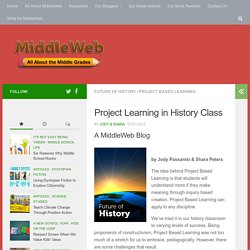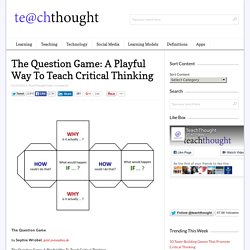

Classroom Self-Persuasion. "The fox leapt high to grasp the grapes, but the delicious-looking fruit remained just out of reach of his snapping jaws.

After a few attempts the fox gave up and said to himself, 'These grapes are sour, and if I had some I would not eat them.' The fox changes his attitude to fit his behavior. " - Aesop’s Fables There is a general misconception that our beliefs are the cause of our actions. Often it is the other way around. Just like the fox, people will tell themselves a story to justify their actions. Punishment, Rewards, and Commitment The issue with classroom management policies in most institutions is that it operates on a carrot-and-stick model.
The goal of self-persuasion is to create cognitive dissonance in the mind of the one being persuaded. Punishment In 1965, Jonathan Freedman conducted a study in which he presented preschoolers with an attractive, desired, "Forbidden Toy. " Weeks later, Freedman pulled the students out of class one by one and had them do a drawing test. Rewards. Flipped Staff Meetings: Why Didn't We Do This A Long Time Ago? How–And Why–We Flipped Our Teacher Staff Meetings by Amy Arbogash Staff Meeting.

There are often no more dreaded words in a teacher’s vocabulary than those. The time we all get together to hear the principal talk about due dates, important initiatives, and the increasing workload on our plate. The place where teachers show up with papers to grade, emails to send, and conversations to catch up on. So if staff meetings tend to be ineffective, boring, and repetitive, why do we continue to run them the way they have always been run? What if teachers could go to staff meetings and be actively collaborating? Our schools, and education in general, are being met with transformative times. Project Based Learning in History and Social Studies. A MiddleWeb Blog by Jody Passanisi & Shara Peters The idea behind Project Based Learning is that students will understand more if they make meaning through inquiry based creation.

Project Based Learning can apply to any discipline. We’ve tried it in our history classroom to varying levels of success. Being proponents of constructivism, Project Based Learning was not too much of a stretch for us to embrace, pedagogically. In this blog post we’ll describe two eighth grade American History units (the U.S. Technology and the Civil War Our Civil War Unit has always been something we weren’t fully satisfied with, so it seemed natural for us to try out Project Based Learning with this unit. While PBL often doesn’t put parameters on the inquiry process, we did create a few parameters for the students. Project-Based Learning for U.S. History?
Designing Rubrics That Rock! The most powerful thing to impact learning is students reporting their own results.

That means moving assessment into the hands of the students. Edutopia-stw-replicatingPBL-21stCAcad-reflection-questions. All You Need to Know About the “Learning Styles” Myth, in Two Minutes. The Question Game: A Playful Way To Teach Critical Thinking. The Question Game by Sophie Wrobel, geist.avesophos.de The Question Game: A Playful Way To Teach Critical Thinking Big idea: Teaching kids to ask smart questions on their own A four-year-old asks on average about 400 questions per day, and an adult hardly asks any.

Our school system is structured around rewards for regurgitating the right answer, and not asking smart questions – in fact, it discourages asking questions. In A More Beautiful Question: The Power of Inquiry to Spark Breakthrough Ideas, Warren Berger suggests that there are three main questions which help in problem solving: Why questions, What If questions, and How questions. Regardless of the question, the question needs to be phrased openly and positively in order to achieve positive results – a closed or negative question only raises bad feelings against each other.
Why questions help to find the root of a problemWhat If questions open up the floor for creative solutionsHow questions focus on developing practical solutions. Dipsticks: Efficient Ways to Check for Understanding. This Teacher Taught His Class A Powerful Lesson About Privilege. 13 Strategies to Improve Student Classroom Discussions. IOP_PrintPlay_SocraticSmackdown_v1. Dipsticks: Efficient Ways to Check for Understanding.
A Must Have Questioning Toolkit for Teachers and Educators ~ Educational Technology and Mobile Learning. RubiStar Home. Bloom's Taxonomy Presented Visually. Get Lesson Plans - Teacher Grants - Teaching Resources and More. RubiStar Home. Homepage - ReadWriteThink.